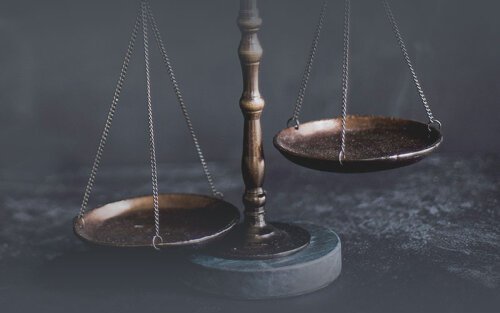Best Bankruptcy Lawyers in Republic of Lithuania
Share your needs with us, get contacted by law firms.
Free. Takes 2 min.
Or refine your search by selecting a city:
List of the best lawyers in Republic of Lithuania
About Bankruptcy Law in Republic of Lithuania:
Bankruptcy in the Republic of Lithuania is governed by the Law on Bankruptcy of Legal Entities and Individuals. This law provides a legal framework for the reorganization or liquidation of insolvent entities and individuals. Bankruptcy proceedings in Lithuania are overseen by the courts, and there are specific procedures and requirements that must be followed in order to declare bankruptcy.
Why You May Need a Lawyer:
There are several situations in which you may require legal assistance for Bankruptcy in the Republic of Lithuania. These may include understanding your rights and obligations as a debtor, navigating the complex bankruptcy procedures, negotiating with creditors, or defending against creditor claims. A lawyer can provide valuable advice and guidance throughout the bankruptcy process to ensure that your interests are protected.
Local Laws Overview:
In the Republic of Lithuania, bankruptcy proceedings can be initiated by either the debtor or creditors. The bankruptcy process involves the appointment of a bankruptcy administrator, who is responsible for managing the assets of the debtor and distributing them to creditors. There are specific timelines and requirements that must be met during the bankruptcy process, and failure to comply with these can result in legal consequences. It is important to consult with a lawyer to ensure that you understand and comply with the local laws governing bankruptcy in Lithuania.
Frequently Asked Questions:
1. What is the process for declaring bankruptcy in Lithuania?
In Lithuania, bankruptcy can be declared by either the debtor or creditors through the court. The court will appoint a bankruptcy administrator to oversee the process, including the sale of assets and distribution of proceeds to creditors.
2. How long does the bankruptcy process typically take in Lithuania?
The duration of the bankruptcy process in Lithuania can vary depending on the complexity of the case. On average, it can take several months to several years to complete the process.
3. Can I file for bankruptcy as an individual in Lithuania?
Yes, individuals in Lithuania can file for bankruptcy under the Law on Bankruptcy of Individuals. The process for individual bankruptcy is similar to that of legal entities, with the court appointing a bankruptcy administrator to manage the process.
4. What are the consequences of declaring bankruptcy in Lithuania?
Declaring bankruptcy in Lithuania can have serious consequences, including the loss of assets, restrictions on future financial activities, and potential damage to your credit rating. It is important to consult with a lawyer to understand the implications of bankruptcy before proceeding.
5. Can a lawyer help me negotiate with creditors during the bankruptcy process?
Yes, a lawyer can help you negotiate with creditors during the bankruptcy process to reach a settlement that is favorable to both parties. An experienced bankruptcy lawyer can provide valuable advice and guidance throughout the negotiation process.
6. What are the alternatives to bankruptcy in Lithuania?
There are several alternatives to bankruptcy in Lithuania, including debt restructuring, debt settlement, and voluntary liquidation. A lawyer can help you explore these options and determine the best course of action for your financial situation.
7. What are the costs of hiring a lawyer for bankruptcy in Lithuania?
The costs of hiring a lawyer for bankruptcy in Lithuania can vary depending on the complexity of your case and the lawyer's fees. It is important to discuss fees and payment arrangements with your lawyer before proceeding with legal representation.
8. How can I find a reputable bankruptcy lawyer in Lithuania?
You can find a reputable bankruptcy lawyer in Lithuania by asking for recommendations from friends or colleagues, searching online legal directories, or contacting the Lithuanian Bar Association for a referral.
9. What documents do I need to prepare for bankruptcy in Lithuania?
Before filing for bankruptcy in Lithuania, you will need to gather and prepare financial documents, such as bank statements, tax returns, and debt records. Your lawyer can help you compile the necessary documentation for the bankruptcy process.
10. How can I appeal a court decision in a bankruptcy case in Lithuania?
If you disagree with a court decision in a bankruptcy case in Lithuania, you can appeal the decision to a higher court. Your lawyer can help you file the necessary paperwork and represent you in the appeals process.
Additional Resources:
If you need legal advice or assistance with bankruptcy in Lithuania, you may contact the Lithuanian Bar Association for a referral to a qualified bankruptcy lawyer. Additionally, the Ministry of Justice of the Republic of Lithuania provides resources and information on bankruptcy proceedings in Lithuania.
Next Steps:
If you are considering bankruptcy in Lithuania, it is important to consult with a qualified bankruptcy lawyer to understand your rights and options. A lawyer can guide you through the bankruptcy process, help you navigate complex legal procedures, and protect your interests throughout the proceedings. Contact a lawyer today to discuss your situation and determine the best course of action for your financial future.
Lawzana helps you find the best lawyers and law firms in Republic of Lithuania through a curated and pre-screened list of qualified legal professionals. Our platform offers rankings and detailed profiles of attorneys and law firms, allowing you to compare based on practice areas, including Bankruptcy, experience, and client feedback.
Each profile includes a description of the firm's areas of practice, client reviews, team members and partners, year of establishment, spoken languages, office locations, contact information, social media presence, and any published articles or resources. Most firms on our platform speak English and are experienced in both local and international legal matters.
Get a quote from top-rated law firms in Republic of Lithuania — quickly, securely, and without unnecessary hassle.
Disclaimer:
The information provided on this page is for general informational purposes only and does not constitute legal advice. While we strive to ensure the accuracy and relevance of the content, legal information may change over time, and interpretations of the law can vary. You should always consult with a qualified legal professional for advice specific to your situation.
We disclaim all liability for actions taken or not taken based on the content of this page. If you believe any information is incorrect or outdated, please contact us, and we will review and update it where appropriate.
Browse bankruptcy law firms by city in Republic of Lithuania
Refine your search by selecting a city.















